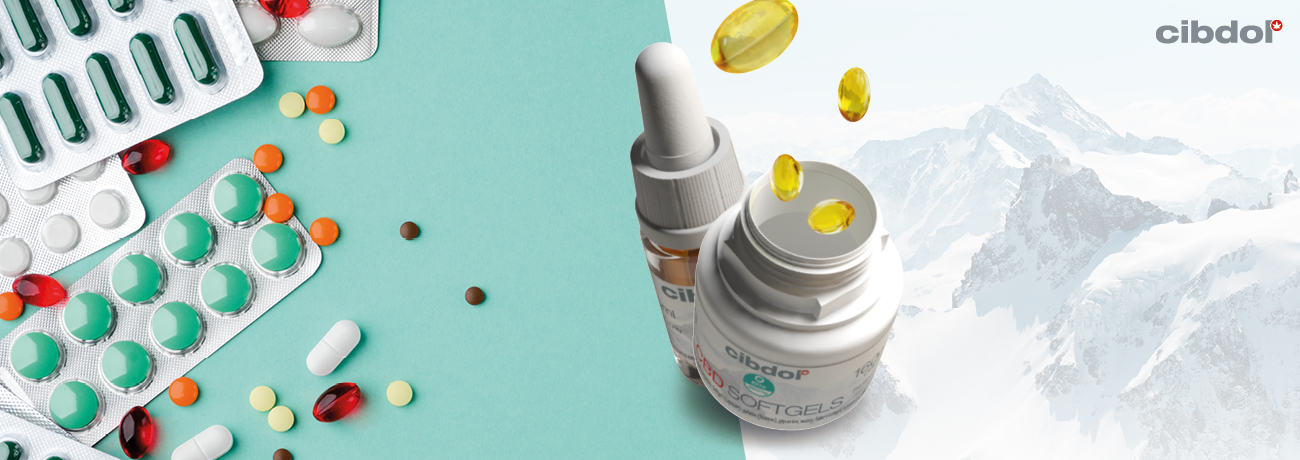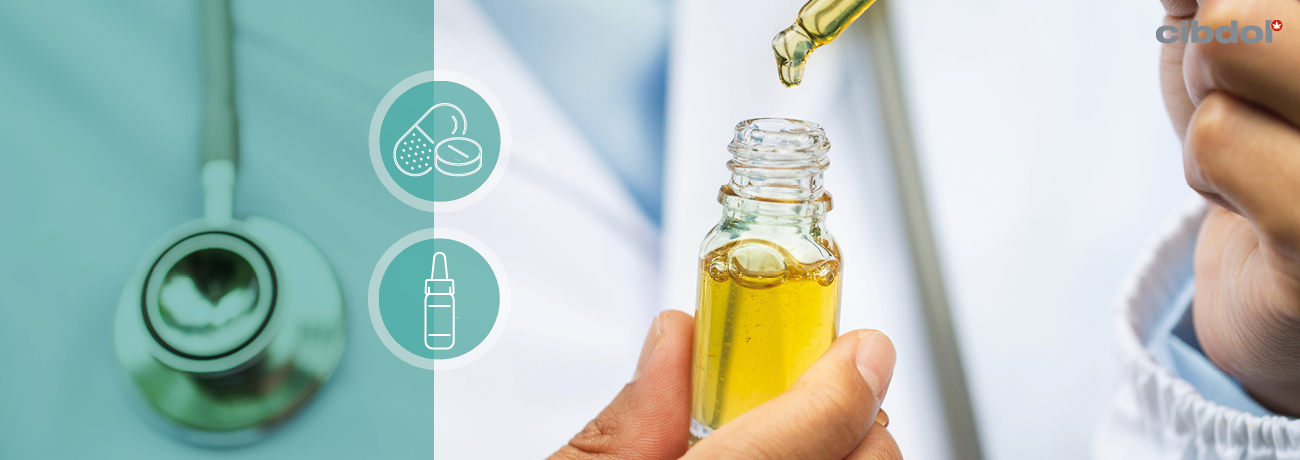Can You Take CBD Alongside Other Medication?

In today's modern age, it is not uncommon for us to take a variety of different medications. Given CBD’s influence on several biological systems, knowing whether it can be taken alongside these regular medications is an important topic. Keep reading for everything you need to know.
Current research shows CBD has an excellent safety record
The different ways in which CBD can support the body continue to be unveiled, but one factor remains constant—the compound’s favourable safety record. CBD is well tolerated[1], even in doses of up to 160mg a day, with minimal side effects. To put that in perspective, an average dose of CBD oil is 3–4 drops three times a day; this totals approximately 42mg/day (based on Cibdol 10% CBD oil).
Furthermore, the compound has been acknowledged as showing a good level of safety by the World Health Organization in their in-depth review[2]. Their conclusion of current CBD research was the following:
“CBD is generally well tolerated with a good safety profile. Reported adverse effects may be the result of drug-drug interactions between CBD and patients’ existing medications”.
The review took into account a broad range of research papers, alongside clinical and preclinical trials. Their findings are encouraging because it outlines that, based on what we currently understand, the side effects of CBD appear minimal.
The long-term safety of CBD extracts
There does, however, remain a question around the long-term safety of CBD. With many studies still in preclinical stages, we don’t fully understand every possible interaction, complication, or side effect that could occur inside the human body.
Fortunately, changes are underway to establish a baseline safety for all CBD extracts. European regulators have classified CBD and its derivatives as a novel food, meaning all CBD products must adhere to strict production standards and an extensive approval process.
Provided a company can prove its CBD meets the novel foods criteria (fit for purpose, clearly labelled, and safe for use), those products will remain on shelves. These new principles will provide a framework for the entire CBD industry and help reduce the risk of unsafe or low-quality CBD products entering the market.
Cibdol understands that there is still a lot to learn about the long-term safety of CBD, which is why we’re proud to be one of three companies in Europe to have successfully submitted a novel food application. It’s only by working together that we can safely realise the compound’s full potential.

Understanding the relationship between CBD and medication
CBD, like many forms of medication, needs to be metabolised by the liver before it can be distributed around the body. Once the digestive system has processed CBD, it will go through a “first-pass” process in the liver. It is at this point that the liver uses special enzymes to help break the CBD down into smaller core components (metabolites) and distribute them around the body via the circulatory system. This process is perfectly natural.
The potential problem with CBD is that when it is consumed alongside other medication, it basically takes all of the liver's attention. The special enzymes we mentioned, specifically the cytochrome P450 enzyme, becomes distracted by CBD, and this can stop it from breaking down any other medication present into smaller parts. This is where adverse effects can occur. If certain medications are left in the body for longer than they should be, the body can start to experience side effects.
Research into the potential interaction between CBD and medication is ongoing
Any drug that is metabolised by the P450 enzyme could be affected by CBD. Many types of steroids, antibiotics, antidepressants, beta blockers, and antihistamines fall into that category, amongst several other forms of medication. However, just because these types of medication are broken down by enzymes in the liver doesn't mean that interaction with CBD will definitely occur. When deciding to take CBD, you should always consult a doctor first, especially if you have concerns about its impact on your prescribed medication.
[1] Bergamaschi, M. M., Costa Queiroz, R. H., S. Crippa, J. A., & Zuardi, A. W. (2011). Safety and Side Effects of Cannabidiol, a Cannabis sativa Constituent. Medicinal Genomics. https://www.medicinalgenomics.com/wp-content/uploads/2013/01/Bergamaschi_2011.pdf [Source]
[2] World Health Organization. (2018). CANNABIDIOL (CBD). https://www.openaccessgovernment.org/who-perspective-on-cannabidiol/80838 [Source]







